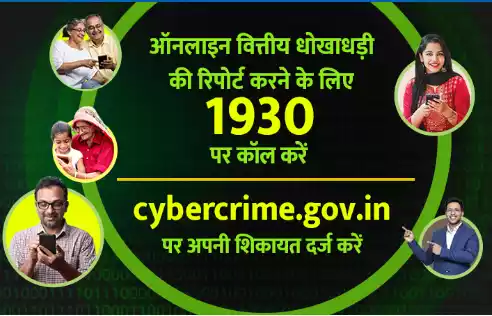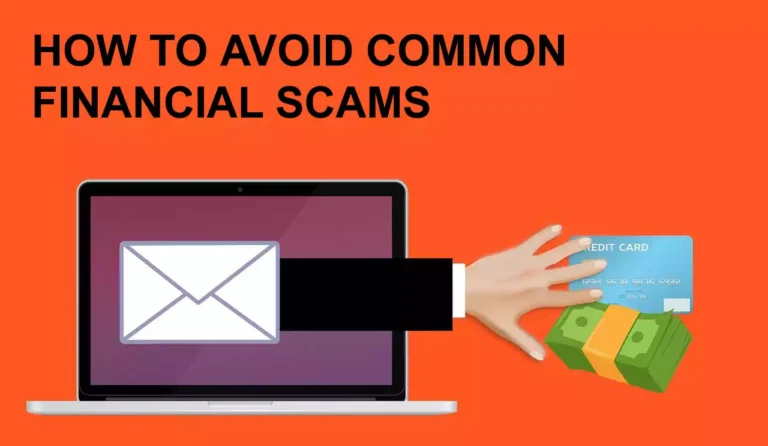In this digital age, financial scams have become increasingly prevalent, putting our hard-earned money at risk. It is essential to stay vigilant and take proactive measures to protect our finances from falling victim to these scams. Whether you are new to the concept or are already familiar with the topic, this article will provide valuable insights and practical tips to safeguard your financial well-being. So, grab a cup of coffee, sit back, and let’s dive into the world of financial scams.
Section 1: Understanding the Types of Financial Scams
Before we delve into the prevention strategies, let’s familiarize ourselves with the common types of financial scams that scammers employ to exploit unsuspecting individuals:
Fake Investment Opportunities
Scammers often lure potential victims with promises of high returns on investment. They may entice you with attractive offers that seem too good to be true, such as get-rich-quick schemes or secret investment opportunities. Be cautious of such promises and always conduct thorough research before investing your hard-earned money.
Phishing and Identity Theft
Phishing is a technique used by scammers to obtain sensitive information, such as your passwords, credit card details, or social security number. They often pose as reputable organizations via email or phone calls, tricking you into sharing your personal information. Never click on suspicious links or provide sensitive data to unknown sources.
Lottery and Sweepstakes Scams
Have you ever received a phone call or an email claiming that you’ve won a substantial sum of money in a lottery or sweepstakes you don’t remember entering? This is a classic scam used to extract money from unsuspecting individuals. Remember, if it sounds too good to be true, it probably is.
Romance Scams
Romance scams prey on the emotions of individuals seeking companionship or love online. Scammers create fake profiles on dating websites or social media platforms, gaining your trust and eventually asking for financial help. Be cautious when interacting with individuals you meet online and avoid sharing your personal and financial details too soon.
Section 2: Practical Tips to Protect Your Finances
Now that we have identified some common financial scams, let’s explore effective tips to avoid falling victim to these scams:
Stay Informed and Educated
Knowledge is power. Stay updated on the latest scam techniques and educate yourself about financial scams. Be aware of the red flags that indicate a potential scam and remain skeptical when faced with unsolicited offers. By staying informed, you’ll be better equipped to protect yourself and your finances.
Use Strong Passwords and Enable Two-Factor Authentication
Protecting your online accounts with strong and unique passwords is crucial. Avoid using easily guessable passwords and enable two-factor authentication whenever possible. This extra layer of security ensures that even if scammers have access to your password, they won’t be able to log in without the second verification step.
Be Cautious with Personal Information
Never share your personal information, such as your social security number, banking details, or passwords, with anyone you don’t trust. Legitimate organizations will never ask for sensitive data via email or phone calls. Be particularly wary of unsolicited communication that insists on immediate action or asks for money.
Verify the Legitimacy of Investment Opportunities
Before investing your hard-earned money, thoroughly research and verify the legitimacy of the investment opportunity. Check if the investment firm or individual is registered with the appropriate regulatory authorities. Be skeptical of promises of high returns with low risk, as genuine investments carry an element of risk.
Scrutinize Emails and Phone Calls
Scammers often use email and phone calls to deceive individuals. Be vigilant and scrutinize every email and call that asks for personal or financial information. Look out for spelling or grammatical errors and avoid clicking on suspicious links or attachments. When in doubt, reach out to the organization directly using their official contact details.
Keep your Antivirus Software Updated
Malware can infect your devices and compromise your financial information. Ensure that you have reliable antivirus software installed on all your devices and keep it updated regularly. This provides an additional layer of protection against malware and helps safeguard your financial transactions.
Section 3: Reporting Financial Scams
If you encounter a financial scam or suspect fraudulent activity, it is essential to report it promptly. By reporting scams, you not only protect yourself but also prevent others from falling victim to similar schemes. Here are some resources to report financial scams:
- Contact your bank/financial institution: If you notice suspicious activity or unauthorized transactions in your account, immediately inform your bank. They can block your cards, freeze your account, and initiate an investigation.
- Report the scam online:
- National Cybercrime Reporting Portal (NCRP): https://cybercrime.gov.in/
- State Police Cybercrime Cell Website: Most states in India have dedicated cybercrime cells with online reporting options. Find yours here: https://twitter.com/cyberdost?lang=en
- Call the National Cybercrime Helpline: Dial 1930 to report the scam over the phone.

Additional Steps:
- File a police complaint: Visit your local police station and file a formal complaint against the scammer. Provide as much detail as possible about the incident.
- Inform the RBI (Reserve Bank of India): If the scam involves a bank or financial institution, you can lodge a complaint with the RBI through their website: https://rbi.org.in/Scripts/Complaints.aspx.
- Consider contacting the Serious Fraud Investigation Office (SFIO): If the scam involves a large financial fraud or corporate crime, you can report it to the SFIO: https://sfio.gov.in/
Conclusion Financial Scams
Protecting your finances from common financial scams requires awareness, caution, and proactive measures. By staying informed about the types of scams, implementing strong security practices, and reporting fraudulent activity, you can safeguard your hard-earned money. Remember, prevention is key, and a little extra vigilance can go a long way in ensuring the security of your finances. Stay informed, stay cautious, and stay financially secure. So, go ahead and take the necessary steps to protect yourself from financial scams. Your financial well-being is in your hands.
Who is most vulnerable to financial scams?
While anyone can be targeted, those with limited financial knowledge, seniors, and individuals in difficult financial situations are often seen as easier targets.
How can I protect myself from financial scams?
Be cautious about unsolicited offers, never share personal information online or over the phone unless you can verify the source, do your research on investments and lenders, and use strong passwords and keep software updated.
I think I received a phishing email. What should I do?
Don’t click on any links or attachments, report the email as spam, and never give out personal information.
I’m being pressured to invest in a get-rich-quick scheme. Is it legit?
Be wary of any opportunity that promises guaranteed returns or seems too good to be true. Do your research on the company and investment before committing any money.
My credit card information was stolen. What steps should I take?
Contact your bank immediately to report the fraud and cancel your card. File a police report and consider placing a freeze on your credit to prevent further damage.
I’m worried about someone stealing my identity. What can I do?
Monitor your credit reports regularly, be careful about sharing personal information online and offline, and use strong passwords and multi-factor authentication for online accounts.
How do I report a financial scam?
Depending on the nature of the scam, you can report it to your bank, financial institution, local authorities, the National Cybercrime Reporting Portal (India), or relevant regulatory agencies.
Can I get my money back after being scammed?
It depends on the circumstances, but it’s always important to report the scam as soon as possible to increase your chances of recovery.
Where can I find more information about financial scams?
There are many resources available online and offline, including government websites, consumer protection agencies, and non-profit organizations dedicated to fighting financial fraud.

